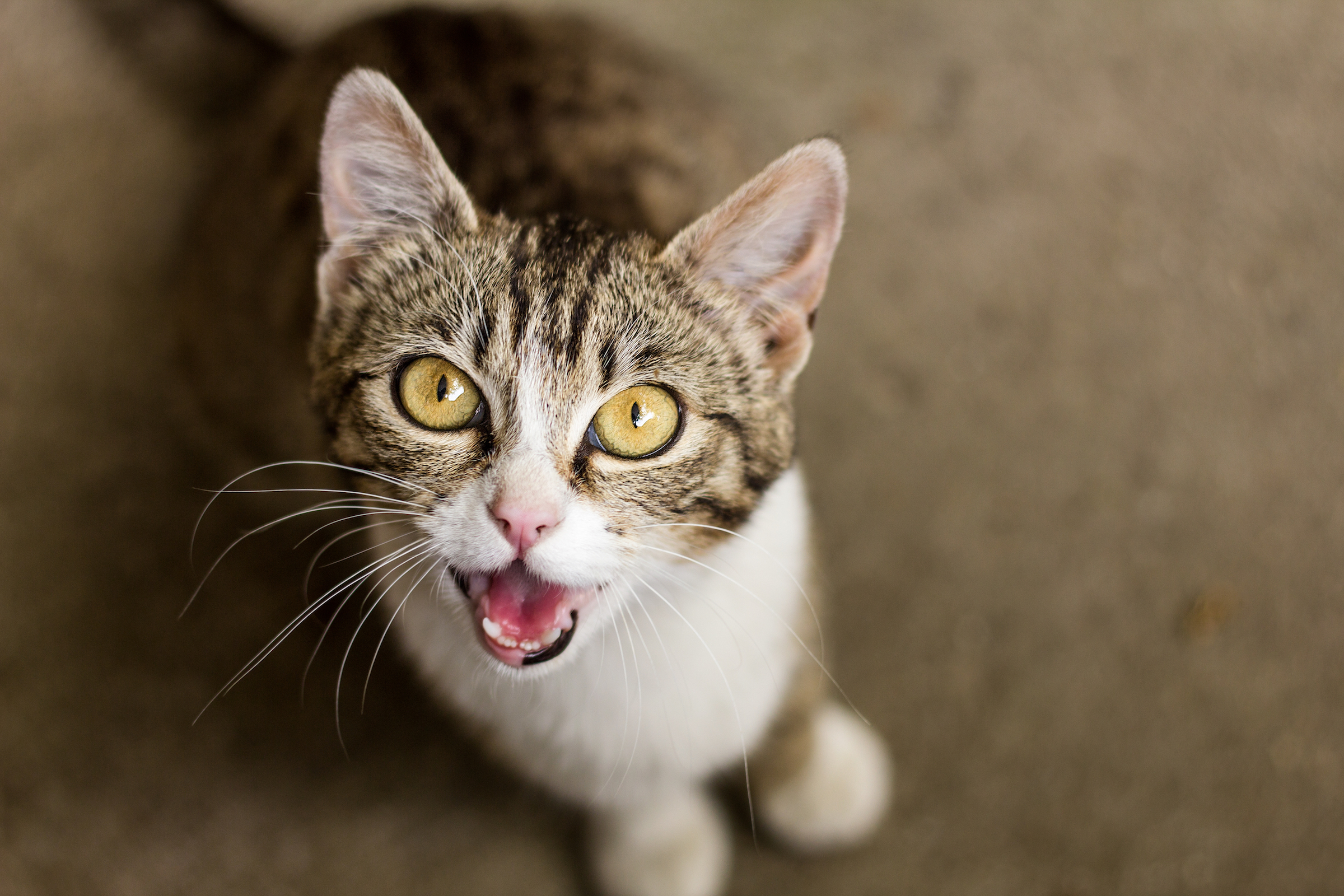Why do cats meow?
It's a language just for humans.

Get the world’s most fascinating discoveries delivered straight to your inbox.
You are now subscribed
Your newsletter sign-up was successful
Want to add more newsletters?

Delivered Daily
Daily Newsletter
Sign up for the latest discoveries, groundbreaking research and fascinating breakthroughs that impact you and the wider world direct to your inbox.

Once a week
Life's Little Mysteries
Feed your curiosity with an exclusive mystery every week, solved with science and delivered direct to your inbox before it's seen anywhere else.

Once a week
How It Works
Sign up to our free science & technology newsletter for your weekly fix of fascinating articles, quick quizzes, amazing images, and more

Delivered daily
Space.com Newsletter
Breaking space news, the latest updates on rocket launches, skywatching events and more!

Once a month
Watch This Space
Sign up to our monthly entertainment newsletter to keep up with all our coverage of the latest sci-fi and space movies, tv shows, games and books.

Once a week
Night Sky This Week
Discover this week's must-see night sky events, moon phases, and stunning astrophotos. Sign up for our skywatching newsletter and explore the universe with us!
Join the club
Get full access to premium articles, exclusive features and a growing list of member rewards.
Every day your cat walks into your office, looks at you indignantly and utters a despondent "meooow." You may not speak cat, but her meaning is clear: "You haven't fed me yet, you monster!"
House cats are unique in the way they use their voices to communicate with their human companions — they rarely meow at one another. So what makes our feline friends so chatty with us?
The answer has to do with domestication, experts told Live Science.
Related: Why dog breeds look so very different, but cats don't
Before cats took up residence with humans almost 10,000 years ago, they were loners, wrote John Bradshaw and Charlotte Cameron-Beaumont in the book "The Domestic Cat: The Biology of Its Behaviour" (Cambridge University Press 2000). Because these ancestral cats rarely encountered other members of their own species, they didn’t need to use their voices to communicate. Instead, these wild cats communicated through their sense of smell, or by rubbing against or urinating on objects like trees. That way, cats didn't have to come face-to-face with other feisty felines in order to send a message. That's still largely the way cats communicate with one another, said John Wright, a psychologist studying animal behavior at Mercer University in Georgia.
"Why use vocalization when it's so efficient to use the other senses?" Wright told Live Science.
But humans don't have nearly as fine-turned a sense of smell as felines. (And we're unlikely to appreciate a cat spraying urine all over a new sofa.) So, cats communicate with their humans in the way that is most likely to get them what they want: by meowing. "They're manipulative," Wright said. "Vocal communication becomes a tool."
Get the world’s most fascinating discoveries delivered straight to your inbox.
Many cats even develop a repertoire of meows to express different needs and feelings or elicit different responses. For example, your cat might trill at you in greeting, squeak a friendly request to go outside or demand food with a loud meow.
Meowing at humans is partially a learned behavior. All cats meow as kittens to get their mom's attention when they're hurt, cold or when she accidentally sits on them. While house cats carry this behavior into adulthood, feral cats (domesticated cats without owners that live outdoors) mostly outgrow it. One study, published in the journal Behavioral Processes, found that feral cats were much more likely to growl or hiss than domesticated cats who had owners. When feral cats did meow, it was indiscriminate — at humans, dolls and dogs alike. House cats meowed much more often, and only at humans, suggesting that they develop meowing as a language specifically for their owners. In other words, your cat meows at you because early on, she learned that doing so got your attention.
If you're curious what your cat has to say, it's possible to encourage communication, Wright said. If humans respond with words and attention to their cats' chirps and meows, they can create a back-and-forth — almost like a conversation. "If you make your responses positive enough and predictive enough that she can listen to your vocalization, then she [the cat] can try and communicate with you," Wright said.
Originally published on Live Science.

Isobel Whitcomb is a contributing writer for Live Science who covers the environment, animals and health. Her work has appeared in the New York Times, Fatherly, Atlas Obscura, Hakai Magazine and Scholastic's Science World Magazine. Isobel's roots are in science. She studied biology at Scripps College in Claremont, California, while working in two different labs and completing a fellowship at Crater Lake National Park. She completed her master's degree in journalism at NYU's Science, Health, and Environmental Reporting Program. She currently lives in Portland, Oregon.
 Live Science Plus
Live Science Plus











